Susan Rich: Blue Atlas
I really would like to post 30 times about 30 different poets during National Poetry Month, but — let me admit up 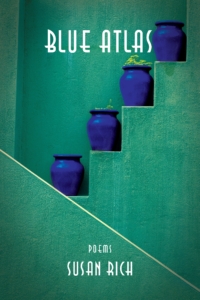 front — I’m lowering thresholds all over the place. Soon I’ll be lying inert in the doorway and you’ll have to step over me. But not today! Today, we get a poem from Seattle poet, editor, and teacher Susan Rich.
front — I’m lowering thresholds all over the place. Soon I’ll be lying inert in the doorway and you’ll have to step over me. But not today! Today, we get a poem from Seattle poet, editor, and teacher Susan Rich.
It’s a book that needs to come with a trigger warning — a young woman, a forced abortion. In the words of Diane Seuss the poems of Blue Atlas (Red Hen Press, 2024), “chart an expansive life which spins around an epicenter of loss,” and transform “anger into amber.”
The long poem “How did I love him — ” with lines like “West African highlife beat,” and “his baritone psalms, his siren pleas” — I just don’t know where to begin. I think of my young adult daughters, and my heart breaks.
But here’s one poem, from the section, “The Decision”:
Your Still Life Builds a Home Inside My Head
In the late afternoon we lose an f-stop
as light bleeds out of the bandaged skyand like phantom detectives with wide-brimmed hats
we reexamine the compass, the passport,
the magnetized color of four o’clock air.In this woman-made harbor, we rearrange
pipe stands and glass slides. We multitask wicker stands
where objects could topple at any time —let them topple!
Here in the land of deferred decisions,
a hand-painted garden ball reflects on a floating scroll.In this alchemical mirror, in this ark of a studio —
built on instinct and breath, through windows
clouded and smeared,under the sign of the light meter
I’ll meet you here. A bright space to hold inside my head,
an open country — another life still new.— Susan Rich
It’s a book and a life “cracked open” (“Once Mother and Father Were Buried”), and the poems crack open the subject matter — Sylvia Plath and Elizabeth Bishop make appearances, as do images from pop culture, and the world of music. My introduction to Blue Atlas arrived via a Zoom with Olympia Poetry Network (OPN), and hearing Rich’s remarkable, memorable presentation made the book stick in my mind. I had to get my hands on it and read the poems for myself. Given the recent attack on Roe vs. Wade, I kept thinking of that oft-quoted passage from William Carlos Williams:
It is hard to get the news from poetry, yet men [women! people!] die miserably every day for lack of what is found there.
These are honest, difficult, and necessary poems. To paraphrase what Rich wrote about June Jordan in a recent Substack Post, These are poems we need right now.
You can learn more about the book at Red Hen Press: https://redhen.org/book/blue-atlas/.
Click THIS LINK to find Rich’s Substack (and information about Poets on the Coast), and here’s a “real” review of Blue Atlas from Tinderbox:

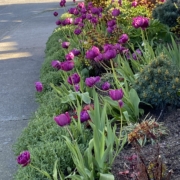
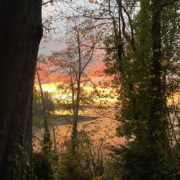
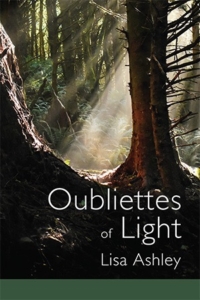 $17.99, paper,
$17.99, paper, 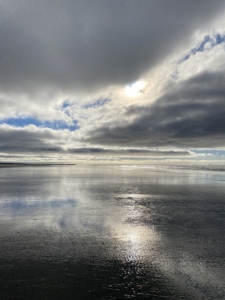
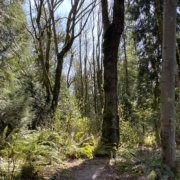
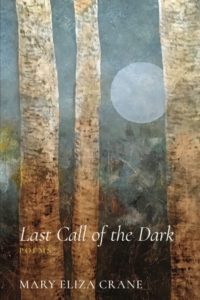 decades. Our paths have crossed at poetry open mics in Kirkland’s Book Tree and at Easy Speak in Wedgewood (Seattle); she is a co-host of her local poetry night in Duvall. To learn more about Last Call of the Dark, see my review (of course), or visit
decades. Our paths have crossed at poetry open mics in Kirkland’s Book Tree and at Easy Speak in Wedgewood (Seattle); she is a co-host of her local poetry night in Duvall. To learn more about Last Call of the Dark, see my review (of course), or visit 
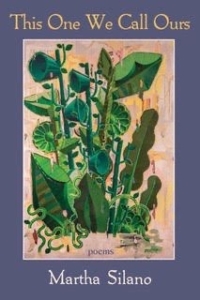 Before I forget, earlier this month I reviewed Martha Silano’s award-winning new book, This One We Call Ours, for Raven Chronicles. You can read the review
Before I forget, earlier this month I reviewed Martha Silano’s award-winning new book, This One We Call Ours, for Raven Chronicles. You can read the review  Kempton, maybe in March. I picked it up, to begin with, at my local library. After a couple chapters, I ordered my own copy and returned the library’s (with a hearty recommendation to the volunteer at the desk).
Kempton, maybe in March. I picked it up, to begin with, at my local library. After a couple chapters, I ordered my own copy and returned the library’s (with a hearty recommendation to the volunteer at the desk). What can I say about this wonderful book of writing advice from Susan Griffin, one of the leading eco-feminist writers of our time? Most of the chapters are quite short. Quoted passages from other writers punctuate the author’s chapters (some of my favorites, Grace Paley, Robert Caro, Le Guin). For instance:
What can I say about this wonderful book of writing advice from Susan Griffin, one of the leading eco-feminist writers of our time? Most of the chapters are quite short. Quoted passages from other writers punctuate the author’s chapters (some of my favorites, Grace Paley, Robert Caro, Le Guin). For instance: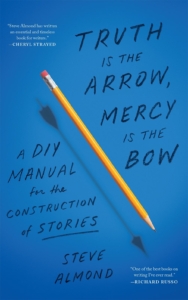 Comic? I liked it, well enough, but I let it get pushed aside by other books. Recently I picked it up again, and I’m so glad I did. I have called other writers and read passages aloud to them. (His stories about his children—Josie and the dread Babrika!—and about reading children’s books aloud, in particular.)
Comic? I liked it, well enough, but I let it get pushed aside by other books. Recently I picked it up again, and I’m so glad I did. I have called other writers and read passages aloud to them. (His stories about his children—Josie and the dread Babrika!—and about reading children’s books aloud, in particular.)